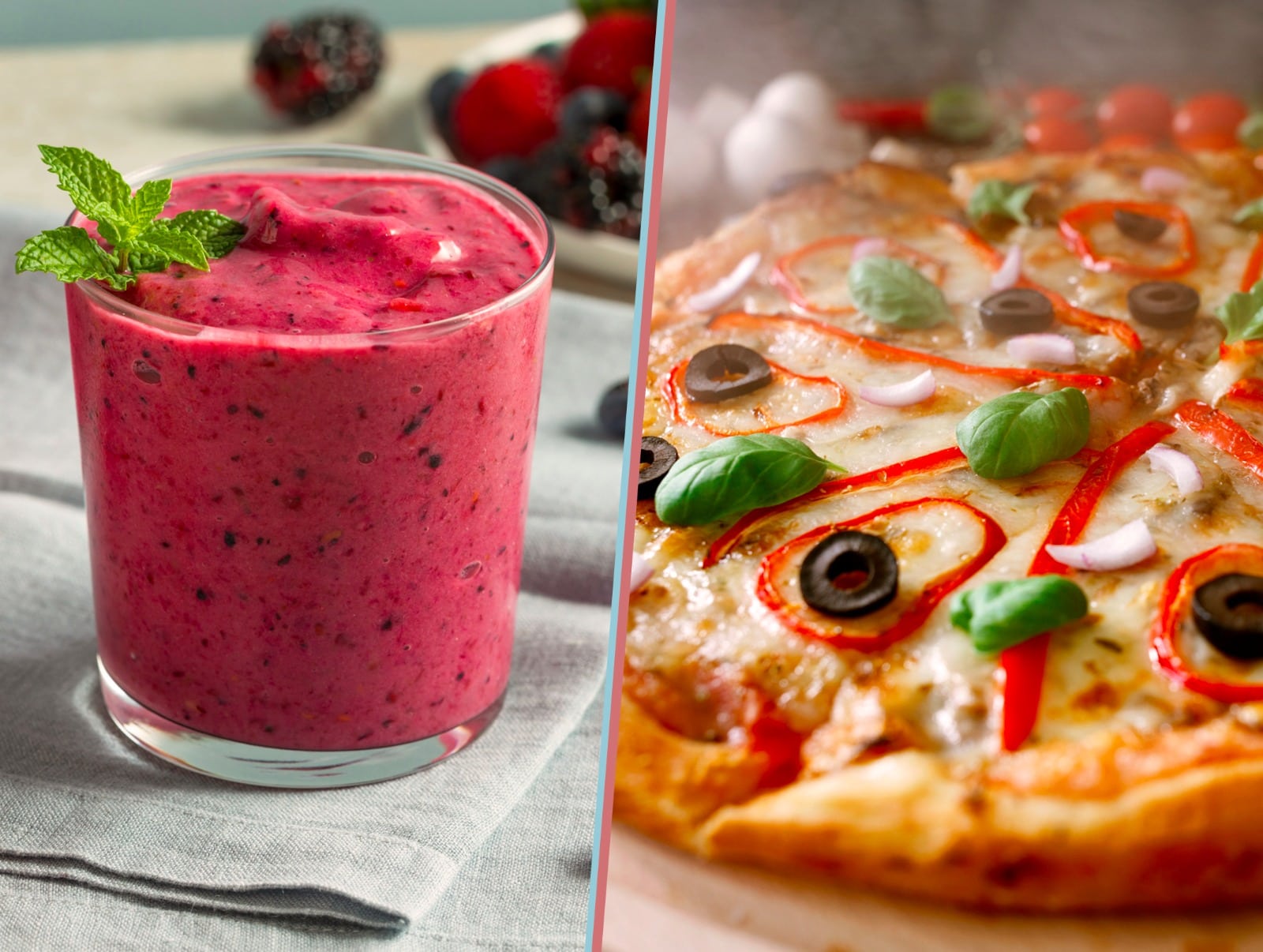We’ve reached a point in our lives where we’ve realized that we truly are what we eat. Unfortunately, we can’t down an entire cheese pizza and continue on with our day like we used to. As much as we should be paying attention to the foods we consume, food temperature is important to take into consideration as well, especially for those of us with digestive issues.
We talked to certified health coach Anne Fleming about the benefits and downsides of eating hot and cold foods. According to Fleming, cold foods are more difficult for the body to digest because our gut needs to work harder to warm cold foods to our core temperature.
“When things are cold, the body has to work harder to digest them,” Fleming told us. “We have to warm the food first before the rest of the digestive process can start. I am not going to argue that you shouldn’t have cold foods but I will say that it is easier on the body if you eat warm food.”
But, as Fleming said, the real difference between hot, cooked foods and cold, raw foods is their nutritional value. “In general, cooking leaches vitamins and nutrients out of fruits and vegetables,” Fleming said, “so the less cooked the better.”
[facebook_ia_ad_tag adid=”1″]
Fleming noted that there are ways to cook foods to preserve nutrition. Rather than boiling veggies, where “you are truly pouring most of the nutrients down the sink when you drain them,” Fleming said, you can instead steam, roast, or bake them, “keeping in mind the crunchier, the better.”
So, if you struggle with digestive issues and therefore prefer to eat warmer foods, this is a great way to consume vegetables while preserving their nutritional value — rather than throwing together a chilled salad.
Another alternative is storing produce at room temperature — just make sure you’re eating your room-temp fruits and vegetables within a few days. “Food begins losing nutrients when it is picked so you want to eat it as soon as you can,” Fleming said.

“In the grand scheme of things, temperature is not as important as what you eat and how your body breaks it down,” Fleming added. She stated that, as a health professional, she recommends eating as many raw fruits and vegetables as possible — especially leafy greens.
[facebook_ia_ad_tag adid=”2″]
But if you really have a craving for something cold, try to keep it in your mouth for longer before you swallow. According to Fleming, this lets the enzymes “start their work breaking food down while you are warming it up!”
Depending on your body, your gut will react differently to varying food temperatures. Take this advice and apply it your diet to help achieve success on your personal health quest.

